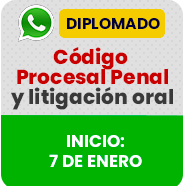Fundamento destacado: 55. No cabe duda de que, en una sociedad democrática, los justiciables tienen derecho a comentar y criticar la administración de justicia y los funcionarios que intervienen en ella. Sin embargo, tales críticas no deben sobrepasar ciertos límites. El Tribunal de Justicia ha declarado que, en principio, las autoridades nacionales están en mejores condiciones para garantizar, dentro del margen de apreciación que les está reservado, un justo equilibrio entre los diferentes intereses en juego en casos similares.
COUR EUROPÉENNE DES DROITS DE L’HOMME
EUROPEAN COURT OF HUMAN RIGHTS
LEŠNÍK v. SLOVAKIA JUDGMENT
In the case of Lešník v. Slovakia,
The European Court of Human Rights (Fourth Section), sitting as a
Chamber composed of:
Sir Nicolas BRATZA, President,
Mr M. PELLONPÄÄ,
Mrs V. STRÁŽNICKÁ,
Mr M. FISCHBACH,
Mr R. MARUSTE,
Mr S. PAVLOVSCHI,
Mr L. GARLICKI, judges,
and Mr M. O’BOYLE, Section Registrar,
Having deliberated in private on 17 December 2002 and 4 February 2003,
Delivers the following judgment, which was adopted on the last-mentioned date:
PROCEDURE
1. The case originated in an application (no. 35640/97) against the Slovak Republic lodged with the European Commission of Human Rights (“the Commission”) under former Article 25 of the Convention for the Protection of Human Rights and Fundamental Freedoms (“the Convention”) by a Slovakian national, Mr Alexej Lešník (“the applicant”), on 10 March 1997.
2. The applicant, who had been granted legal aid, was represented by Mr J. Hrubala, a lawyer practising in Banská Bystrica. The Slovakian Government (“the Government”) were represented by their Agent, Mr P. Vršanský.
3. The applicant alleged, in particular, that his right to freedom of expression had been violated as a result of his conviction for statements in respect of a public prosecutor.
4. The application was transmitted to the Court on 1 November 1998, when Protocol No. 11 to the Convention came into force (Article 5 § 2 of Protocol No. 11).
5. The application was allocated to the Second Section of the Court (Rule 52 § 1 of the Rules of Court). Within that Section, the Chamber that would consider the case (Article 27 § 1 of the Convention) was constituted as provided in Rule 26 § 1.
6. On 1 November 2001 the Court changed the composition of its Sections (Rule 25 § 1). This case was assigned to the newly composed Fourth Section.
[Continúa…]
![No cualquier expresión favorable sobre un acto terrorista, o su autor, constituye delito; para ello, se requiere (i) exaltación de un acto terrorista ya realizado; (ii) si es sobre la persona, que tenga condena firme; (iii) uso de medio idóneo y público (difusión a un número indeterminado de personas) y (iv) que la exaltación lesione reglas democráticas de pluralidad, tolerancia y consenso [Exp. 010-2002-AI/TC, f. j. 88]](https://img.lpderecho.pe/wp-content/uploads/2025/10/MAZO-JUEZ-SENTENCIA-PENAL-LPDERECHO-218x150.jpg)
![Precisan criterios de actuación de fiscalías supremas y superiores en delitos de función atribuidos a magistrados [Res. de la Fiscalía de la Nación 3860-2025-MP-FN]](https://img.lpderecho.pe/wp-content/uploads/2024/10/ministerio-publico-fachada-LPDERECHO-1-218x150.jpg)


![La apología al terrorismo no tiene como fin provocar nuevas acciones delictivas; su daño está en alabar, destacar y resaltar el terrorismo o a sus autores con condena firme, contribuyendo a legitimar las acciones de fuerzas contrarias al orden constitucional y sus valores [Exp. 00005-2020-AI/TC, f. j. 45]](https://img.lpderecho.pe/wp-content/uploads/2023/05/tribunal-constitucional-tc-precedente-LPDerecho-218x150.png)
![Tercerización laboral: TC ratifica constitucionalidad [Exp. 01902-2023-PA/TC]](https://img.lpderecho.pe/wp-content/uploads/2024/04/trabajadora-empleado-oficina-presencial-trabajador-LPDerecho-218x150.jpg)


![Ley Orgánica del Registro Nacional de Identificación y Estado Civil (Ley 26497) [actualizada 2025]](https://img.lpderecho.pe/wp-content/uploads/2025/05/Ley-organica-del-registro-nacional-de-identificacion-y-estado-civil1-LPDERECHO-218x150.jpg)













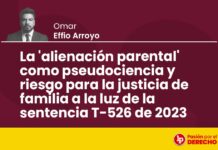
![DL 276: aprueban MUC para servidores y funcionarios de las entidades del gobierno nacional y gobiernos regionales [DS 328-2025-EF]](https://img.lpderecho.pe/wp-content/uploads/2024/03/ministerio-economia-finanza-mef-2-LPDerecho-218x150.jpg)

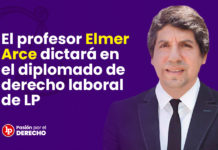

![Modifican Reglamento de la Ley del Servicio Militar para fortalecer inscripción y beneficios [DS 018-2025-DE] Servicio militar - LP](https://img.lpderecho.pe/wp-content/uploads/2021/05/Servicio-militar-LP-218x150.png)
![Reglamento para la contratación de Servicios de Consultoría de la Agencia de Promoción de la Inversión Privada (Proinversión) [Acuerdo Proinversión 161-1-2025-CD]](https://img.lpderecho.pe/wp-content/uploads/2026/01/proinversion-LPDerecho-218x150.jpg)
![Derogan diversas directivas del OSCE [Res. D000129-2025-OECE-PRE]](https://img.lpderecho.pe/wp-content/uploads/2024/03/organismo-superior-contrataciones-estado-osce-LPDerecho-218x150.jpg)
![Concluyen nombramiento de fiscal Sandra Castro, quien postulará al Senado [Res. de la Fiscalía de la Nación 3848-2025-MP-FN]](https://img.lpderecho.pe/wp-content/uploads/2024/10/ministerio-publico-fachada-LPDERECHO-218x150.jpg)
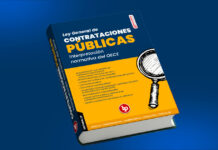
![Código Penal peruano [actualizado 2025]](https://img.lpderecho.pe/wp-content/uploads/2024/05/VENTA-CODIGO-PENAL-LPDERECHO-218x150.jpg)
![Código de Protección y Defensa del Consumidor (Ley 29571) [actualizado 2025] Codigo proteccion defensa consumidor - LPDercho](https://img.lpderecho.pe/wp-content/uploads/2024/05/Codigo-proteccion-defensa-consumidor-LPDercho-218x150.png)
![Decreto Legislativo del Notariado (Decreto Legislativo 1049) [actualizado 2025]](https://img.lpderecho.pe/wp-content/uploads/2025/10/DECRETO-LEGISLATIVO-NOTARIO-1049-2025-LPDERECHO-218x150.jpg)



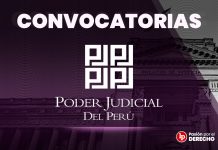

![[VÍDEO] ¿Quieres postular a la Fiscalía? Estas son las preguntas que hacen en las entrevistas](https://img.lpderecho.pe/wp-content/uploads/2021/10/postular-fiscalia-preguntas-entrevista-LP-218x150.jpg)




![EXP. N.° 0022-2009-PI/TC LIMA GONZALO TUANAMA TUANAMA Y MÁS DE 5000 CIUDADANOS SENTENCIA DEL TRIBUNAL CONSTITUCIONAL En Lima, a los 09 días del mes de junio de 2010, el Tribunal Constitucional en sesión de Pleno Jurisdiccional, con la asistencia de los magistrados Mesía Ramírez, Beaumont Callirgos, Vergara Gotelli, Landa Arroyo, Calle Hayen, Eto Cruz y Álvarez Miranda, pronuncia la siguiente sentencia con los fundamentos de voto de los magistrados Vergara Gotelli y Landa Arroyo, que se agregan. ASUNTO Demanda de Inconstitucionalidad interpuesta por Gonzalo Tuanama Tuanama, en representación de más de 5000 ciudadanos contra el Decreto Legislativo N.° 1089. DEMANDA Y CONTESTACIÓN a) Demanda contra el Decreto Legislativo N.° 1089, que regula el Régimen Temporal Extraordinario de Formalización y Titulación de Predios Rurales Con fecha 01 de julio de 2009, se interpone demanda de inconstitucionalidad contra el Decreto Legislativo N.° 1089, que regula el Régimen Temporal Extraordinario de Formalización y Titulación de Predios Rurales, publicada en el diario oficial El Peruano el 28 de junio de 2008. Los demandantes refieren que “'sin entrar al fondo del contenido de la norma”, ésta fue promulgada sin efectuar ninguna consulta previa e informada a los pueblos indígenas, tal como lo ordena el Convenio 169 de la Organización Internacional De Trabajo (OIT), afectándose con ello los derechos fundamentales de los pueblos Indígenas, como el derecho a la consulta previa y el derecho colectivo al territorio ancestral, establecidos en los artículos 6, 15, 17 del mencionado convenio. De igual forma, expresan que no se tomaron en cuenta los artículos 19, 30 y 32 de la Declaración de las Naciones Unidas sobre los Derechos de los Pueblos Indígenas (DNUDPI) aprobado por la Asamblea General de la Organización de Naciones Unidas. Alegan que con dicha norma se afectan otros derechos establecidos en el Convenio N.° 169, como el derecho sobre las tierras de los pueblos indígenas (artículos 13 al 19), en el considerando que no se tomaron en cuenta medida que garanticen la protección de sus derechos de propiedad y posesión. Refieren que se afecta también el derecho a la libre determinación de las comunidades nativas, previsto en el artículo 17 del Convenio, que declara el respeto de sus formas tradicionales de transmisión de sus territorios. Por último, alegan que se estaría vulnerando lo previsto en el artículo 19 del Convenio en cuanto se afecta el derecho al desarrollo de políticas agrarias adecuadas para los pueblos indígenas. [Continúa...] Descargue la resolución aquí](https://img.lpderecho.pe/wp-content/uploads/2023/01/Logo-LP-con-fondo-guinda-LPDERECHO-1068x561.png)
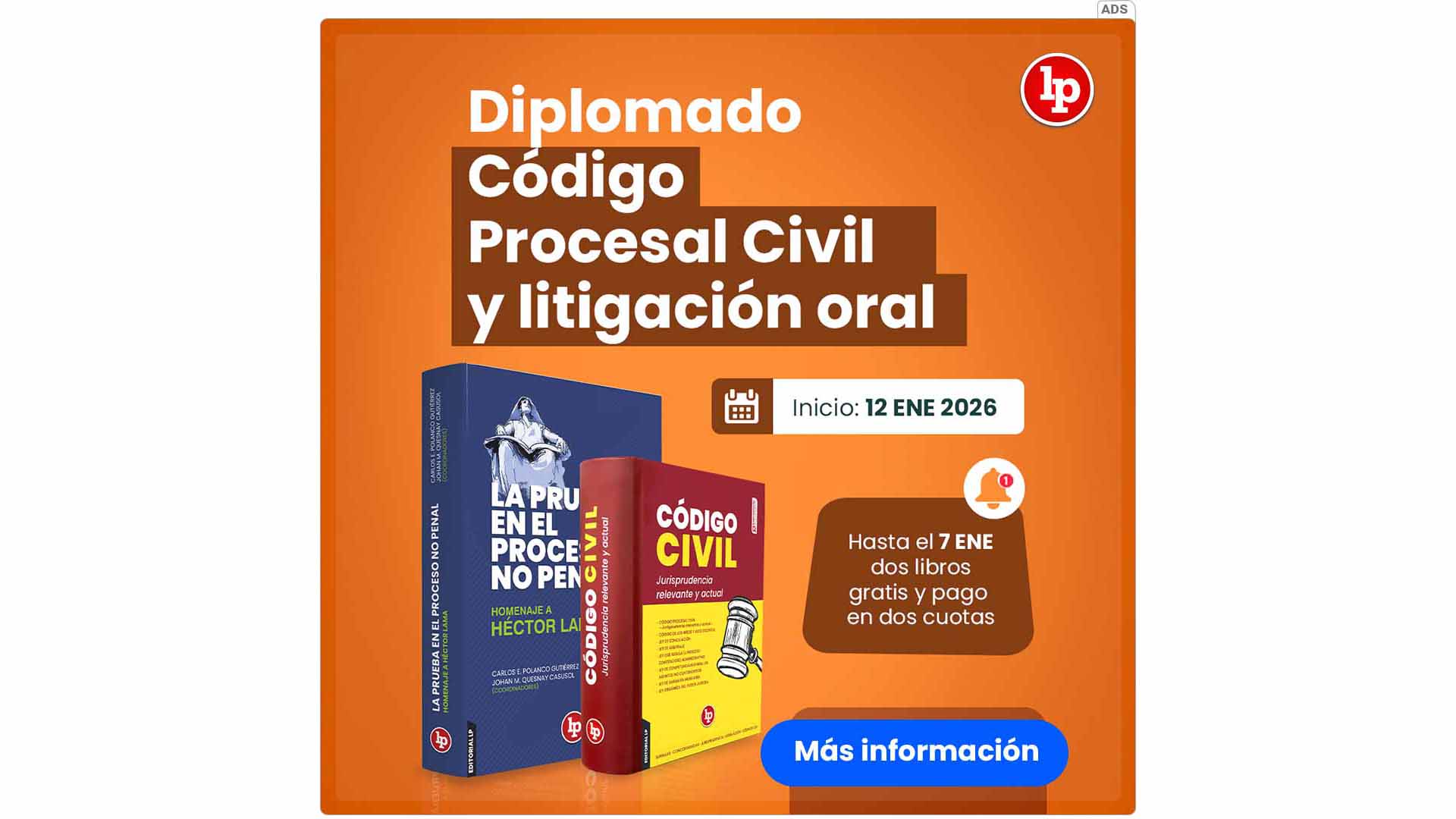
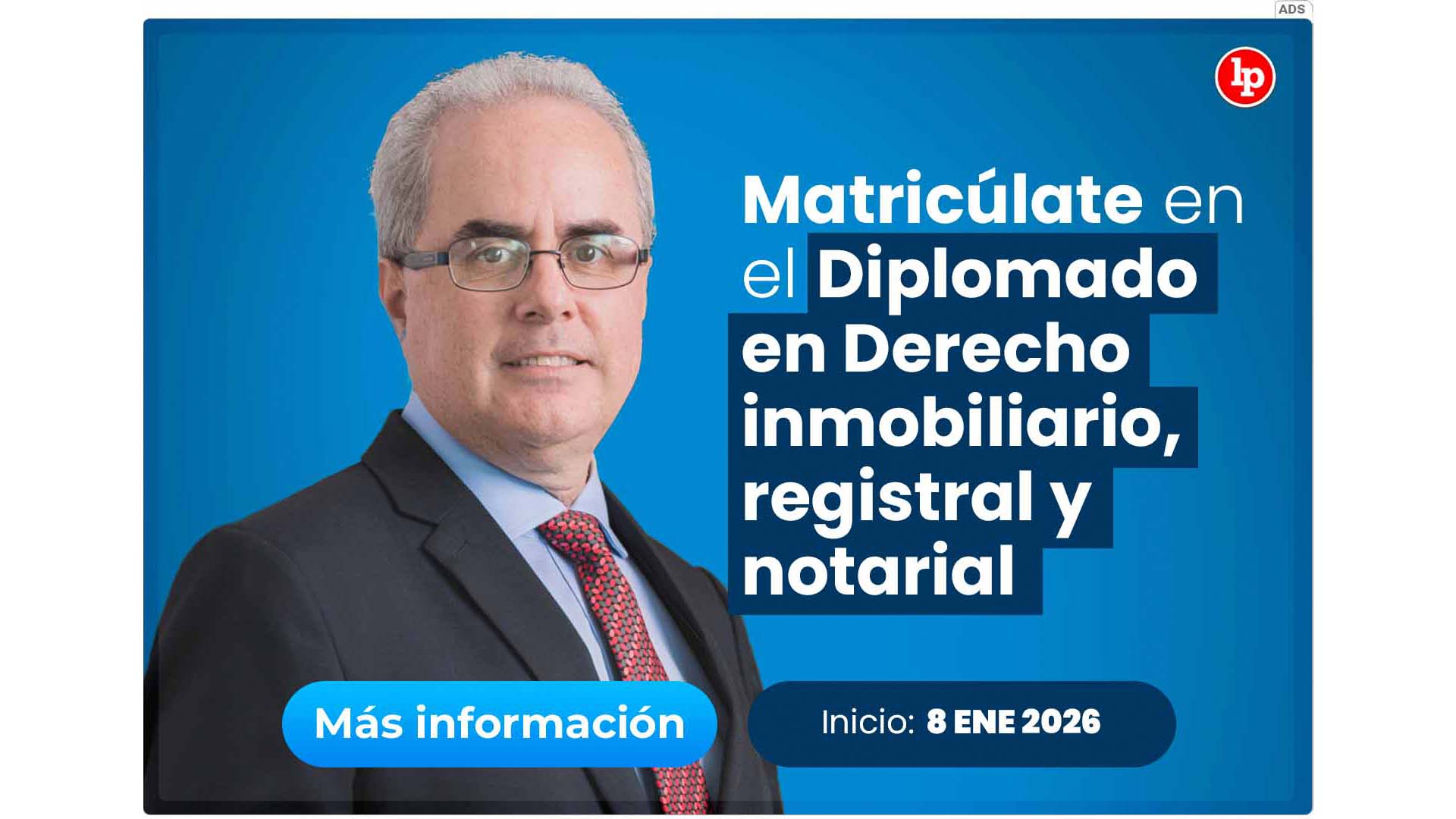
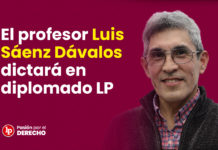
![DL 276: aprueban MUC para servidores y funcionarios de las entidades del gobierno nacional y gobiernos regionales [DS 328-2025-EF]](https://img.lpderecho.pe/wp-content/uploads/2024/03/ministerio-economia-finanza-mef-2-LPDerecho-324x160.jpg)
![Modifican el Reglamento que regula el uso de la fuerza por parte de la Policía Nacional del Perú [DS 021-2025-IN]](https://img.lpderecho.pe/wp-content/uploads/2023/05/policia-pnp-LPDerecho-100x70.png)
![Designan al General César Briceño jefe del Comando Conjunto de las Fuerzas Armadas [Resolución Suprema 101-2025-DE]](https://img.lpderecho.pe/wp-content/uploads/2025/12/MASCARA-CESAR-BRICENO-VALDIVIA-LPDERECHO-100x70.jpg)
![Fijan nuevos montos para la suspensión de pagos y retenciones de cuarta categoría en 2026 [Resolución de Superintendencia 000390-2025/Sunat]](https://img.lpderecho.pe/wp-content/uploads/2023/03/sunat-fachada-LPDerecho-1-100x70.png)

![Modifican Reglamento de la Ley del Servicio Militar para fortalecer inscripción y beneficios [DS 018-2025-DE] Servicio militar - LP](https://img.lpderecho.pe/wp-content/uploads/2021/05/Servicio-militar-LP-324x160.png)
![Reglamento para la contratación de Servicios de Consultoría de la Agencia de Promoción de la Inversión Privada (Proinversión) [Acuerdo Proinversión 161-1-2025-CD]](https://img.lpderecho.pe/wp-content/uploads/2026/01/proinversion-LPDerecho-100x70.jpg)
![La apología al terrorismo no tiene como fin provocar nuevas acciones delictivas; su daño está en alabar, destacar y resaltar el terrorismo o a sus autores con condena firme, contribuyendo a legitimar las acciones de fuerzas contrarias al orden constitucional y sus valores [Exp. 00005-2020-AI/TC, f. j. 45]](https://img.lpderecho.pe/wp-content/uploads/2023/05/tribunal-constitucional-tc-precedente-LPDerecho-100x70.png)
![No cualquier expresión favorable sobre un acto terrorista, o su autor, constituye delito; para ello, se requiere (i) exaltación de un acto terrorista ya realizado; (ii) si es sobre la persona, que tenga condena firme; (iii) uso de medio idóneo y público (difusión a un número indeterminado de personas) y (iv) que la exaltación lesione reglas democráticas de pluralidad, tolerancia y consenso [Exp. 010-2002-AI/TC, f. j. 88]](https://img.lpderecho.pe/wp-content/uploads/2025/10/MAZO-JUEZ-SENTENCIA-PENAL-LPDERECHO-100x70.jpg)
![Precisan criterios de actuación de fiscalías supremas y superiores en delitos de función atribuidos a magistrados [Res. de la Fiscalía de la Nación 3860-2025-MP-FN]](https://img.lpderecho.pe/wp-content/uploads/2024/10/ministerio-publico-fachada-LPDERECHO-1-100x70.jpg)
![DL 276: aprueban MUC para servidores y funcionarios de las entidades del gobierno nacional y gobiernos regionales [DS 328-2025-EF]](https://img.lpderecho.pe/wp-content/uploads/2024/03/ministerio-economia-finanza-mef-2-LPDerecho-100x70.jpg)
![Modifican Reglamento de la Ley del Servicio Militar para fortalecer inscripción y beneficios [DS 018-2025-DE] Servicio militar - LP](https://img.lpderecho.pe/wp-content/uploads/2021/05/Servicio-militar-LP-100x70.png)
